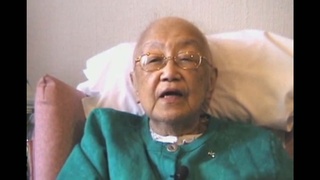Interviews
Japanese were treated with dignity during WWII (Spanish)
(Spanish) The Colombian government had something to do with the protection, so to speak, of the Japanese, because they were respected farmers.
They helped to develop farming practices in Colombia, so they didn’t mistreat them. They treated them with a lot of dignity, I think. His experience, in spite of everything, wasn’t the worst. The family suffered because they were alone and had to figure out how to survive with the head of the household gone. But really, it wasn’t so bad for them, they weren’t mistreated.
Date: September 22, 2019
Location: California, US
Interviewer: Yoko Nishimura
Contributed by: Watase Media Arts Center, Japanese American National Museum





